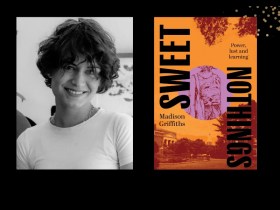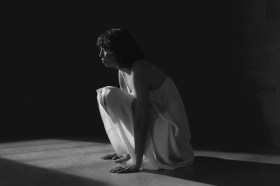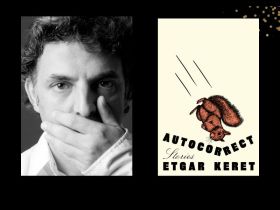For me, for many, 2020 forced an appreciation of the hyper local. Especially in Melbourne, where – for months on end – people were confined to long hours at home and short forays in a tight 5km radius. Daily walks a kind of neo-Victorian perambulation: out for exercise, but also to see and be seen.
And as host of a radio book show and podcast – interviewing on stream and cutting shows together while my dog slept or grunted impatiently at my feet – never have I more keenly felt the need for connection with local writers and writing.
In lockdown, I introduced new segments to promote local books and authors. And judging the inaugural Small Press Network Book of the Year Award, I saw the role local independent publishers could play in increasing the breadth, diversity and complexity of Australian literature.
So, with this in mind, the books I’m most anticipating for next year are the work of local – often small – independent presses from around the country.
In February, Giramondo offers award-winning novelist Fiona McGregor’s Buried not Dead, a collection of essays – ‘portraits of the artists, writers, dancers, tattooists and DJs that have made their mark on the culture over the past thirty years’.
Giramondo will also release a non-fiction collection, No Document, the second book by one of Australia’s most staggeringly talented critics, Anwen Crawford. Her first – Live Through This (one of Bloomsbury’s 33 1/3 series of tiny books about landmark albums) – was a smart and empathetic look at the impact of Hole’s seminal album. I will read anything Crawford writes. I suggest you do the same.
In early March, Melbourne publisher Scribe kicks off with Alison Croggon’s Monsters: a reckoning – a ‘hybrid of memoir and essay’ that launches from a painful rift between two sisters exploring how ‘the structures we are raised within splinter and distort the possibilities of our lives and the lives of others’. Also, in March, comes Madelene Ryan’s A Room Called Earth, a debut novel by a neurodiverse author that ‘explores a young woman’s magical sensitive and passionate inner world.’ At the end of that busy month, the publisher delivers Black and blue: A Memoir of Racism and Resilience in which writer and proud Kurnai woman, Veronica Heritage-Gorrie chronicles her time as one of Australia’s few Aboriginal police officers and the ‘appalling institutional racism and sexism’ she confronted – and continues to expose as a writer and activist.
Read: Most popular reviews of 2020
Text Publishing offers its typical array of high-quality offerings in every genre. And in the top half of the year that includes, Victorian Premier Literary Award winner Sarah Krasnostein’s much anticipated second book, The Believer – an empathetic look at six people who find faith in belief’s outer regions ‘from ghosts and gods and flying saucers’, examining the stories we tell ourselves to ‘deal with the distance between the world as it is, and the world as we’d like it to be’. Also in March, look out for Leanne Hall’s YA mystery, The Gaps, Kavita Bedford’s debut novel, Friends and Dark Shapes, and The Shape of Sound, Fiona Murphy’s memoir about self-acceptance and the societal pressure that led her to hide her deafness for 25 years.
Melbourne’s Transit Lounge, releases Angela O’Keefe’s debut novel Night Blue, told ‘largely from the voice of a [Jackson Pollock] painting, Blue poles’ and veteran poet and novelist John Kinsella’s new novel, Pushing Back.
Based in Broome, WA, Magabala Books is the biggest publisher of Aboriginal and Torres Strait Islander authors in the country. It’s a small press gaining growing recognition – winning last year’s Prime Minister’s Literary Award for Children’s Literature, for the gorgeously illustrated Cooee Mittigar: A Story on Darug Songlines (by Jasmine Seymour; illustrated by Leanne Mulgo Watson). Upcoming children’s books include Ambelin Kwaymullina’s Billie and the Blue Bike which is ‘a fun and engaging way to introduce young children to financial literacy knowledge’, with a particular focus on Aboriginal and Torres Strait Islander readers.
Adelaide’s leading independent Wakefield Press will publish Jelena Dinic’s Adelaide Festival Unpublished Manuscript Award-winning poetry collection titled In the Room With the She Wolf. In April, Stephen Orr’s playful take on Australian literature’s most famous hoax, Sincerely, Ethel Malley – a novel that gnaws on Australia’s discomfort with its own literary pretensions and chews at ‘the gristle of a culture we’ve never really trusted’. Mid-year brings Libby Trainor Parker’s memoir, Endo Days: Life, Love and Laughs with Endometriosis. And later in the year comes Hometown Haunts: #LoveOzYA Horror Tales – a collection of YA genre stories by established and emerging writers, edited by Poppy Nwosu. Also in Adelaide, new independent MidnightSun releases Irma Gold’s debut novel, travel thriller The Breaking.
In July, the University of Queensland Press (UQP) releases Larissa Behrendt’s After Story, a novel about an Indigenous lawyer showing her mother around England’s literary landmarks, celebrating ‘the power of words and the quiet spaces in between’. And in August UQP offers a new collection of short stories by acclaimed writer, Tony Birch, author of (among many other titles) The White Girl – winner of the 2020 NSW Premier’s Award for Indigenous Writing.
Brand new Sydney independent, Ultimo, kicks off a debut novel, Hannah Bent’s When Things are Alive They Hum. And later in the year follows up with Diana Reid’s Love and Virtue. Written during lockdown, the debut novel was (according to Books + Publishing) ‘explores virtue signalling and moral ambiguity in a contemporary college setting’ and was bought in a ‘hotly contested, eight-publisher auction’.
Of course, probably Australia’s biggest independent press, Allen & Unwin, should be included here. Notable local titles coming up include much-loved award-winning literary author, Susan Johnson’s latest novel, From Where I Fell (out in March). Also, a WWII spy thriller by literary journal Kill Your Darlings publishing director, Rebecca Starford (February). Also, I will not be alone in anticipating Christos Tsiolkas’s new book of ‘autofiction’ 7½, and Michelle de Kretser’s Scary Monsters –both out later in the year.
Read: What makes bookshops so valuable?
More interestingly, (and in a move that feels ripped from the pages of TV show, Younger) A&U are pushing into the indie market with a promising new imprint, Joan (tagline: Radical, inclusive, rebellious). Helmed by writer, actor and director (TV’s Black Comedy; and the upcoming, Preppers) – Nakkiah Lui, and named after her grandmother, the new imprint aims to, according to Lui, ‘create space for the voices that get pushed to the fringes, because when our most vulnerable follow their dreams, they create limitless dreams for the rest of us.’ I’m looking forward to seeing where Lui’s considerable vision leads.
I’m also excited to read Black Inc’s Growing up Disabled in Australia (February) edited by Carly Findlay. And in June, Alice Pung’s One Hundred Days – her second foray into fiction, this time with an adult novel.
And… keep an eye out for titles coming out through Subbed In. This small literary press published bags of interesting literary titles and contemporary poetry in 2020, including Cham Zhi Yi’s excellent Ann Elder Poetry Award-winning collection, blur by the.
Finally, consider going to your local independent bookseller and taking a chance on a book by a small press and a local author. Perhaps you’ll make a serendipitous connection that will make you look at where you are, who you are, and what you read, anew.





